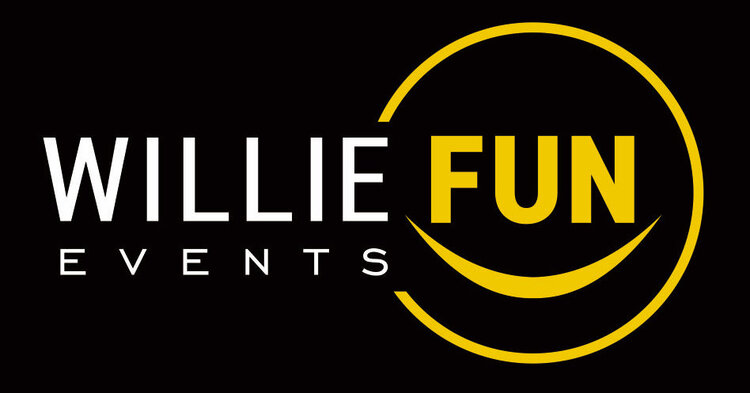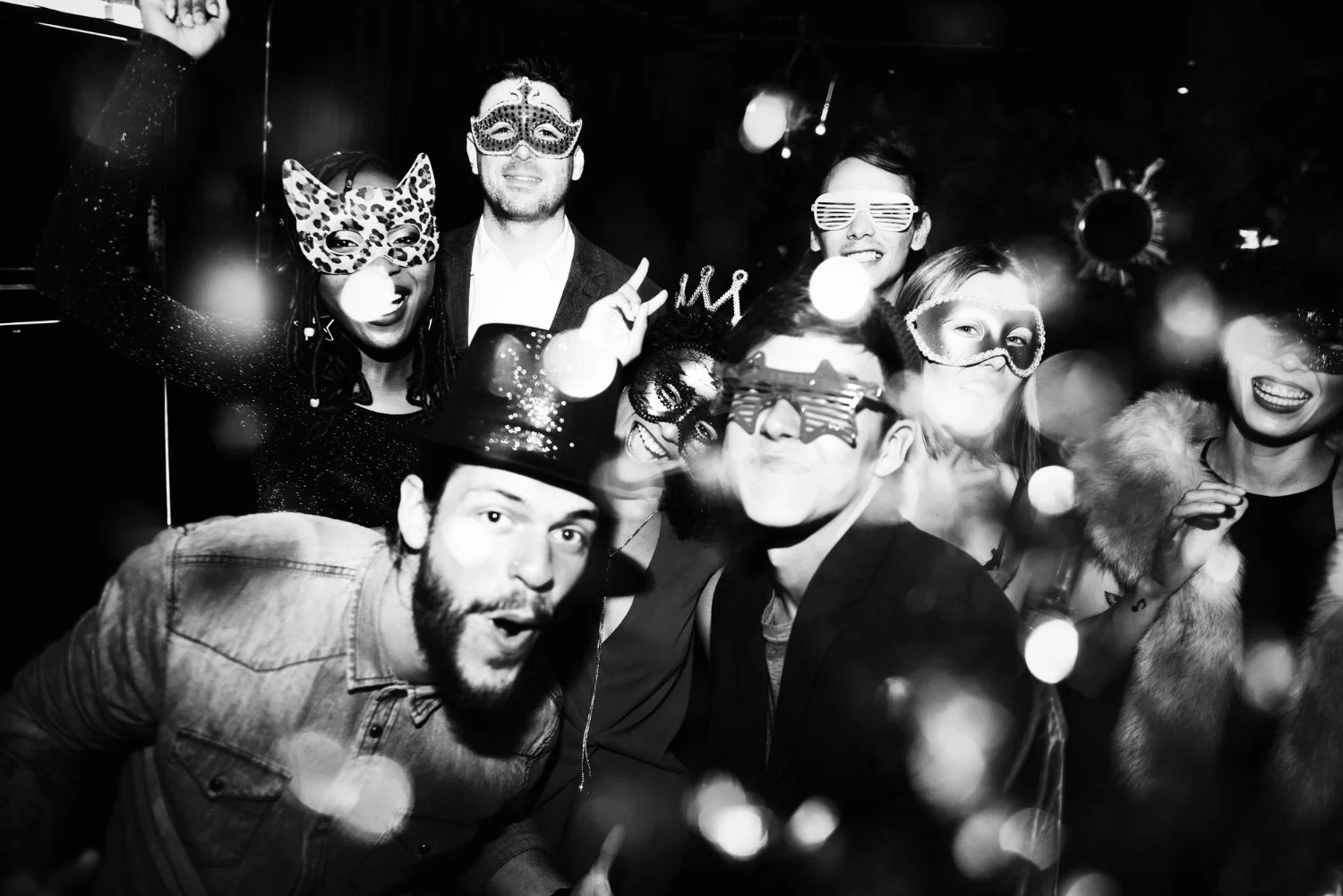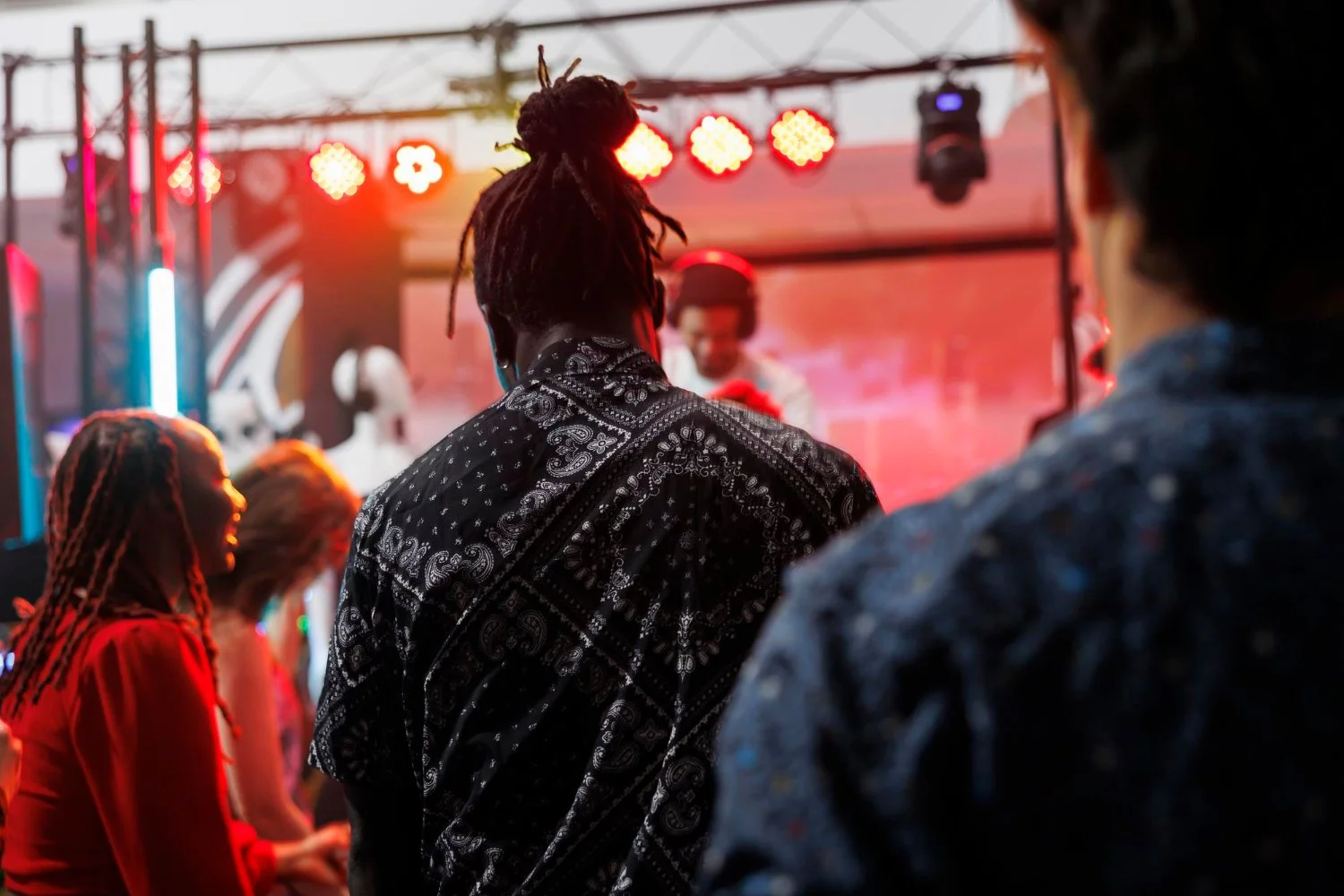The return of analog corporate events.
There’s a quiet shift happening in the corporate event world — one that’s pulling us away from pixels and back toward people. After years of virtual meetings, livestreams, and tech-heavy activations, companies are rediscovering the power of real connection.
Welcome to the rise of the analog event — where in-person experiences, atmosphere, and emotion take center stage.
What Exactly Is an Analog Event?
An analog event isn’t about rejecting technology — it’s about rebalancing it.
It’s the art of creating an experience that feels authentic, tactile, and personal. Think of warm lighting instead of blue screens. Think of a live dealer teaching blackjack to coworkers instead of a gamified app. Think of real laughter echoing off lounge furniture, not emojis in a chat box.
In an analog event, guests aren’t just attendees — they’re participants. Every element of the design, from the layout to the lighting, is crafted to encourage genuine interaction. It’s an antidote to digital fatigue, and it’s quickly becoming the new gold standard for corporate entertainment.
Why Corporate Audiences Are Craving the Real Thing
After years of remote work and virtual everything, teams want to reconnect — for real.
They want to celebrate achievements, share ideas, and build relationships in spaces that feel alive. The analog trend reflects a deeper cultural shift: presence itself has become a luxury.
For companies, this means that the most memorable events in 2026 won’t be the most high-tech — they’ll be the most human. A beautifully staged cocktail lounge, a live-hosted casino night, or a creative networking space with real texture and ambiance — these are what today’s employees and clients remember long after the event ends.
The Aesthetic of Authenticity
In the analog era, design tells the story. Every detail matters — from the fabric on the chairs to the tone of the lighting.
At Willie Fun Events, we see this every day in our corporate rentals. Lounge seating clusters turn sterile ballrooms into stylish gathering spaces. Soft drape backdrops and warm uplighting create comfort and intimacy. Even our interactive games — from roulette to LED skee-ball — are curated to invite guests to engage face-to-face instead of behind a screen.
Analog event design isn’t about spectacle; it’s about sensation. It’s how the environment makes people feel.
Tech Still Belongs — Just in the Background
Analog doesn’t mean unplugged. The smartest event planners use technology strategically — to enhance the live experience, not dominate it.
That might mean subtle LED lighting effects synced to music, crisp sound systems that make speeches feel cinematic, or interactive photo stations that encourage laughter rather than distraction.
In short, analog events keep the focus where it belongs — on people — while technology quietly does its job behind the scenes.
2026 corporate event trend: analog events.
How to Bring Analog Energy to Corporate Events
Here’s how companies can tap into this trend:
Create Shared Moments: Replace passive watching with interactive experiences — casino games, collaborative lounges, or themed food stations.
Prioritize Sensory Design: Texture, lighting, scent, and music shape emotion more than screens ever could.
Encourage Real Conversation: Design layouts that make it easy to mingle. Think clusters, not rows.
Add Personality: Incorporate branded décor or curated themes that feel bespoke to your company culture.
Focus on Flow: A great analog event feels effortless — guests move naturally from one experience to another without disruption.
The Future of Corporate Entertainment Feels Personal
The best events of 2026 won’t just be seen — they’ll be felt.
Analog events remind us that technology can support connection, but it can’t replace it. For brands and businesses, that realization is transforming what “corporate entertainment” means.
At Willie Fun Events, we’re proud to help companies design spaces where real connection happens — through atmosphere, detail, and genuine fun. Because the most impactful events don’t happen online — they happen together.





